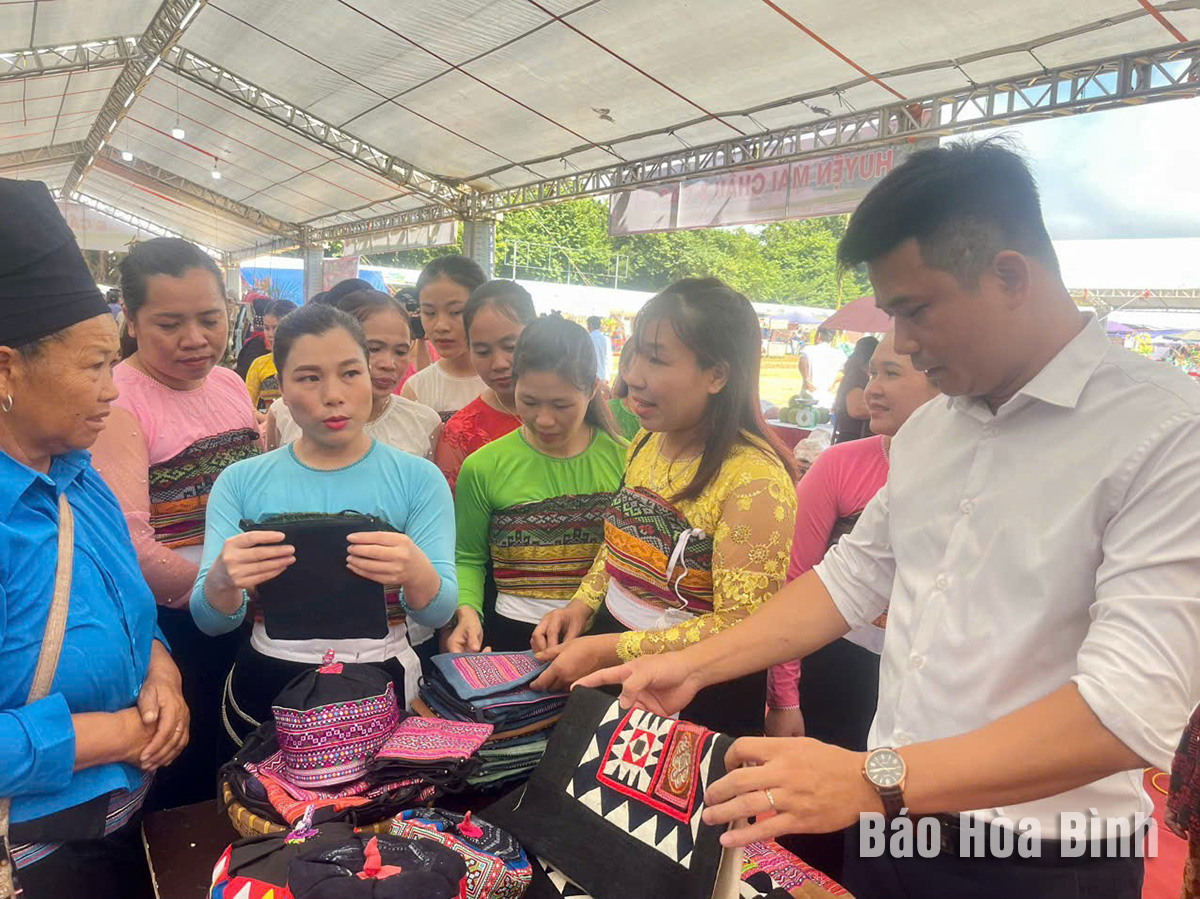
Mai Chau district, which is aiming to turn itself into a key tourism site of Hoa Binh province, has provided training courses in non-agricultural sectors for rural workers. This is a bold step to help local people shift to more suitable employment so as to improve incomes.
Trainees of
tour guide training course go on a field trip at a local market in 2023.
Ha Quynh Chi, a resident in Pom Coong village,
Mai Chau town, has joined a cooking class at the district’s centre for
vocational training and continuing education, though her household has provided
homestay service for years. After only three months, Chi is able to master
basic bartending and cooking techniques, and apply what she has learnt to
develop her family’s tourism model.
Chi is part of a larger group of rural workers
who find new ways after engaging in vocational training classes. In fact, the
courses have changed their mind, helping them see tourism as a long-term and
stable livelihood.
Ha Van Son from Nhot hamlet, Na Phon commune
said he possesses various tour guide skills, including interesting introduction
of local ethnic cultures, communication, and smooth settlement of situations,
after attending the district’s tour guide training class.
Over the past time, Mai Chau district has
arranged various courses for rural labourers, providing them with necessary
skills to develop household economy, stabilise their lives and effectively
carry out criteria to build new style rural areas.
According to Lo Van Binh, director of the
district’s centre for vocational training and continuing education, three tour
guide classes, five cooking classes and eight classes to revive the traditional
brocade weaving were organised in 2023 with financial support from the national
target programme on socio-economic development in ethnic-inhabited and
mountainous areas, the national target programme on sutainable poverty
reduction during 2021-2025, and the district’s budget.
The classes, which drew the participation of 480
people, have proved to be effective, contributing to reducing the poverty rate
to 20.79% in 2023, or 3.45% lower than the figure in 2022, he added.
Vocational training and poverty alleviation have
close relations, Binh said, highlighting that practical courses that are in
line with the society’s demand will be a key to local socio-economic growth.
The Department of Education and Training of Hoa Binh province held a conference on March 18 to review the performance of the "Safe and Happy School" Project and set out tasks for 2025. The project, funded by the Taiwan Fund for Children and Families (TFCF), aims to create a safe, inclusive, and supportive learning environment for students. The event saw the attendance of representatives from the TFCF and 26 beneficiary schools.
With over 70% of their workers being women, trade unions across industrial parks (IPs) in Hoa Binh have been actively safeguarding their legal rights and interests while implementing initiatives to improve their income and well-being.
In recent years, the Hoa Binh provincial General Hospital has continuously innovated itself and improved the quality of medical services to meet the increasing needs of local people. With substantial investments in infrastructure and modern equipment, along with a team of highly qualified doctors and nurses, the hospital has gradually established itself as one of the leading medical units in the Northwestern region and a trusted destination for healthcare for people inside and outside the province.
From mastering the fundamentals of programming to achieving national recognition, the Programming Club of the Le Van Tam Primary School (STAR LVT28) in Hoa Binh city has made remarkable strides in the field of robotics.
The Ho Chi Minh Communist Youth Union Committee and the Vietnam Youth Federation chapter of Hoa Binh province organised a programme on March 12 to launch the "Digital Literacy" movement and an online quiz on the resolutions of the Vietnam Youth Federation congresses at all levels, as well as the Politburo's Resolution No. 57-NQ/TW on breakthroughs in the development of science, technology, innovation, and national digital transformation.
As climate change grows more unpredictable, the development of production forests has become essential - not just for economic growth, but for safeguarding the environment and maintaining ecosystem balance. By boosting local incomes, curbing natural disasters, preventing soil erosion, and protecting water resources, these forests play a crucial role in sustainable development.



